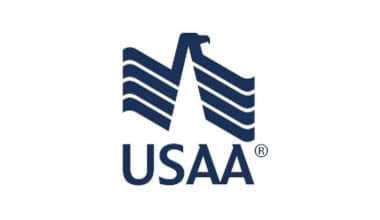Professional liability insurance is a type of business insurance that covers you if a client sues you for an alleged error or inappropriate advice. Errors and omissions insurance is another name for it.
You should obtain professional liability insurance if you provide services to clients for a price. Here’s what this insurance covers and where you can get it.
What Is the Definition of Professional Liability Insurance?
Professional liability insurance covers any losses resulting from accusations of carelessness or wrongdoing. In other words, if you make a mistake—or are believed to have made a mistake—and your client suffers a loss as a result and sues you, your professional liability insurance will cover the costs. It is frequently referred to as “errors and omissions insurance.”
What Does Professional Liability Insurance Cover?
Errors and omissions insurance is another name for PLI. It can protect firms from the following types of claims, as well as pay legal and settlement costs:
#1. Professional Negligence
Professional negligence is defined as the failing to meet a level of care. Assume that an architecture firm creates a branch for a local bank. A year later, the bank is sued by a customer for failing to comply with the Americans with Disabilities Act, or ADA. The bank may sue the architecture firm for violating professional standards. More information on architect insurance can be found here.
#2. Failure to deliver on time a promised service
Failure to deliver on time a promised service. Assume a factory employs an IT consultant to manage a cybersecurity upgrade. The consultant says that it will be completed by the end of the year, but they are unable to meet that deadline. The factory was hacked in January after the project was meant to be done according to the contract. The facility could sue the consultant to recover the costs of the security violation. Learn more about consultant professional liability insurance.
#3. Contract violation
If an insurance agency’s contract states that it will assist clients in settling claims but does not have the staff to do so when the time comes, clients may allege that the agency breached the contract. Learn more about insurance agents’ E&O insurance.
#4. Errors
Medical malpractice insurance is a sort of professional liability insurance that covers claims of professional mistakes. For example, if a nurse gives a patient the incorrect dosage of a drug, the patient or their family may sue. Learn more about the cost of medical malpractice insurance.
#5. Professional Ethics Misconduct
If a college lecturer consistently grades one student harder than their peers, and that student is unable to graduate on time, the student or their parents may sue the instructor.
It safeguards your company regardless of whether legal claims are deemed to be valid. Your coverage may pay out in both frivolous and substantiated lawsuits.
Professional liability insurance plans, unlike some other types of liability insurance, generally protect against claims of financial losses rather than claims of bodily harm or property damage. Medical malpractice insurance, however, is an exception, as is coverage for architects and engineers.
What Does Professional Liability Insurance Not Cover?
Professional liability does not protect a company from:
- Bodily injury or property damage that customers or clients incur while doing business with you; for example, if they trip and fall in your office or if their personal papers are destroyed in a fire. These are claims for general liability insurance.
- Employees file lawsuits alleging wrongful termination or workplace harassment. A company will need employment practices liability insurance for these.
- Fraud or criminal behavior. The subsequent professional liability claim is not covered if you or one of your employees commits a crime or willfully misleads a client.
Professional Liability Insurance Wording
The professional liability plans vary in wording between providers. Some may be expressed in ways that make comparison easier, while others may differ sufficiently that what looks to be the same coverage isn’t.
Non-lawyers may be confused by wording with significant legal differences. Consider the following two phrases:
- Negligent act, error, or omission
- Negligent act, negligent error, or negligent omission
Coverage for a “negligent act, error, or omission” compensates the policyholder for losses/circumstances sustained solely as a result of a professional error or omission or a negligent act. Because of the phrasing, a negligent error or omission would not be covered.
The “negligent act, negligent error, or negligent omission” clause differs from the prior clause in its interpretation. To be covered, an error or omission must be determined to be negligent rather than simply an error or omission. If you wanted to cover all five sorts of situations, the phrase could say “negligent acts, negligent errors, negligent omissions, errors, or omissions.”
You should consult with a lawyer who is knowledgeable about professional liability insurance before acquiring coverage. You don’t want to acquire coverage and then not be covered because the provider’s wording excludes an incident from coverage.
What Is the Cost of Professional Liability Insurance?
According to Insureon, professional liability insurance costs an average of $61 per month. Less than a third (32%), or $50 per month or $600 per year, of Insureon small company policyholders pay for professional liability insurance.
Your professional liability insurance prices will be determined by a number of factors, including:
- Your line of work
- The size and quantity of employees in your organization
- Your earnings
- The most common threats to your industry
- Your company’s location
- Your previous claims history
- The coverage limits you select
How to Find the Most Affordable Professional Liability Insurance
#1. Determine How Much Coverage You Require
It is critical to determine how much you will require given on your industry, company size, and level of risk. It’s a good idea to consult with an independent insurance agent who can assist you in determining the proper level of coverage.
Professional liability insurance can cover up to $2 million. A $1 million professional liability insurance coverage is purchased by the majority of Insureon policyholders (63%).
#2. Compare Insurance Quotes
Comparing business insurance quotes from a few different insurance companies side by side will help you identify which coverage covers your bases at a reasonable cost.
#3. Look for bargains.
Bundling professional liability insurance with other types of small company insurance might result in a discount from some insurance companies.
What Constitutes PLI?
If you work for a service company, the company should have PLI and your services should be protected under its policy. However, if you own a small business that provides professional services or contracts with other businesses, you should think about getting this form of insurance. Professionals who require this insurance include, for instance:
- Consultants
- Insurance brokers for engineers
- Real estate brokers
- Brokers
- Accountants and Architects
- Financial planners
What are the Two Different Types of PLI?
Claims-made and occurrence are the two categories of professional liability insurance. Claims-made implies the policy had to be active at the time the event and lawsuit occurred, and occurrence means the insurance covers any qualified claim originating from an incident that occurred while the policy was active.
What Is the Difference Between Personal Liability Insurance and Professional Liability Insurance?
Personal liability insurance protects you against damages or injury to others caused by your personal property. Professional liability insurance protects you in the event that claims are made against you for professional negligence, errors, omissions, or other difficulties that may emerge while providing professional services for a living.
The Best Way to Find Professional Liability Insurance
All major insurance firms, in general, provide professional liability or errors and omissions insurance. If you currently have company insurance, ask your provider if you can supplement it with a professional liability policy. Multipolicy discounts are available from some insurance carriers.
However, Businessyield advocates obtaining numerous business insurance quotes in order to discover the best rates and coverage.
Consider the following PLI providers.
#1. Chubb
Best for: The most comprehensive professional liability insurance available.
Chubb offers professional liability insurance to firms with less than $1 million in sales via the Internet. It also scored second in J.D. Power’s 2022 U.S. Small Commercial Insurance Study for customer satisfaction.
#2. The Hartford
Best for: Supplementing a business owner’s policy with PLI.
A business owner’s policy may be your best option if you also require general liability and commercial property insurance. Hartford provides a BOP that can be supplemented with data breach coverage and professional liability coverage. On Hartford’s website, you can acquire an estimate, and certain businesses may be able to purchase coverage online.
#3. biBERK
Best for: Online purchasing of professional liability insurance.
BiBERK, a Berkshire Hathaway business, sells professional liability insurance online and via phone. You should be able to acquire a quote online in minutes, making it simple to compare biBERK’s offerings with those of other providers.
#4. Hiscox
Best for: Businesses that do work outside the United States. Hiscox’s professional liability insurance policy covers work done abroad as long as the claim is lodged in the United States (or one of its territories) or Canada. You can acquire a quote online, and certain organizations, like The Hartford, may be able to complete their purchase online.
What is Professional Liability Insurance Proof?
A liability insurance certificate proves that you have professional liability insurance. This may be required by your client or profession. A liability insurance certificate contains basic information such as your coverage limits, insurance company name, policy number, and policy start and end dates.
Your insurer should supply you with a liability insurance certificate at no cost. If you misplace your certificate or require a replacement, you can usually obtain one through your insurer’s online portal or by contacting your insurance provider.
Is Professional Liability the Same as Errors and Omissions Insurance?
Errors and omissions insurance is the same as professional liability insurance. It is a type of small business insurance that protects your company from claims of professional service errors, such as services that are inaccurate, late, or never delivered. It covers your legal costs, judgments, and settlements.
Is Professional Liability Insurance Deductible for Tax Purposes?
Small business owners can generally deduct the cost of business insurance, including professional liability insurance, from their taxable income.
General liability insurance, commercial property insurance, commercial car insurance, and workers’ compensation insurance are examples of business insurance premiums that may be tax deductible. However, certain types of premiums, such as those for disability insurance or loan protection insurance, cannot be deducted. It is advisable to seek the advice of a tax professional.
Conclusion
Professional liability insurance protects small business experts such as doctors, lawyers, accountants, and architects from professional blunders. It is necessary coverage since mistakes happen no matter how diligent or experienced a professional is.
PLI costs between $500 and $1,000 each year, making it less expensive than paying for a lawyer, court charges, and other related expenses. If you own a small business, you should consult with an insurance professional to establish whether you need coverage and how much you should obtain.
- BUSINESS INSURANCE QUOTES ONLINE: Best Services & Quotes
- Vendors Insurance: Protect Yourself and Your Business
- Best Liability Insurance Providers For Small Businesses in 2023
- Small Business Liability Insurance: How Does It Work?
- Business Liability Insurance: Meaning, Types & Coverage






